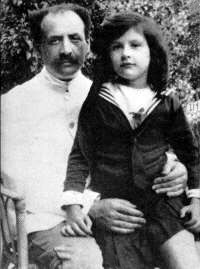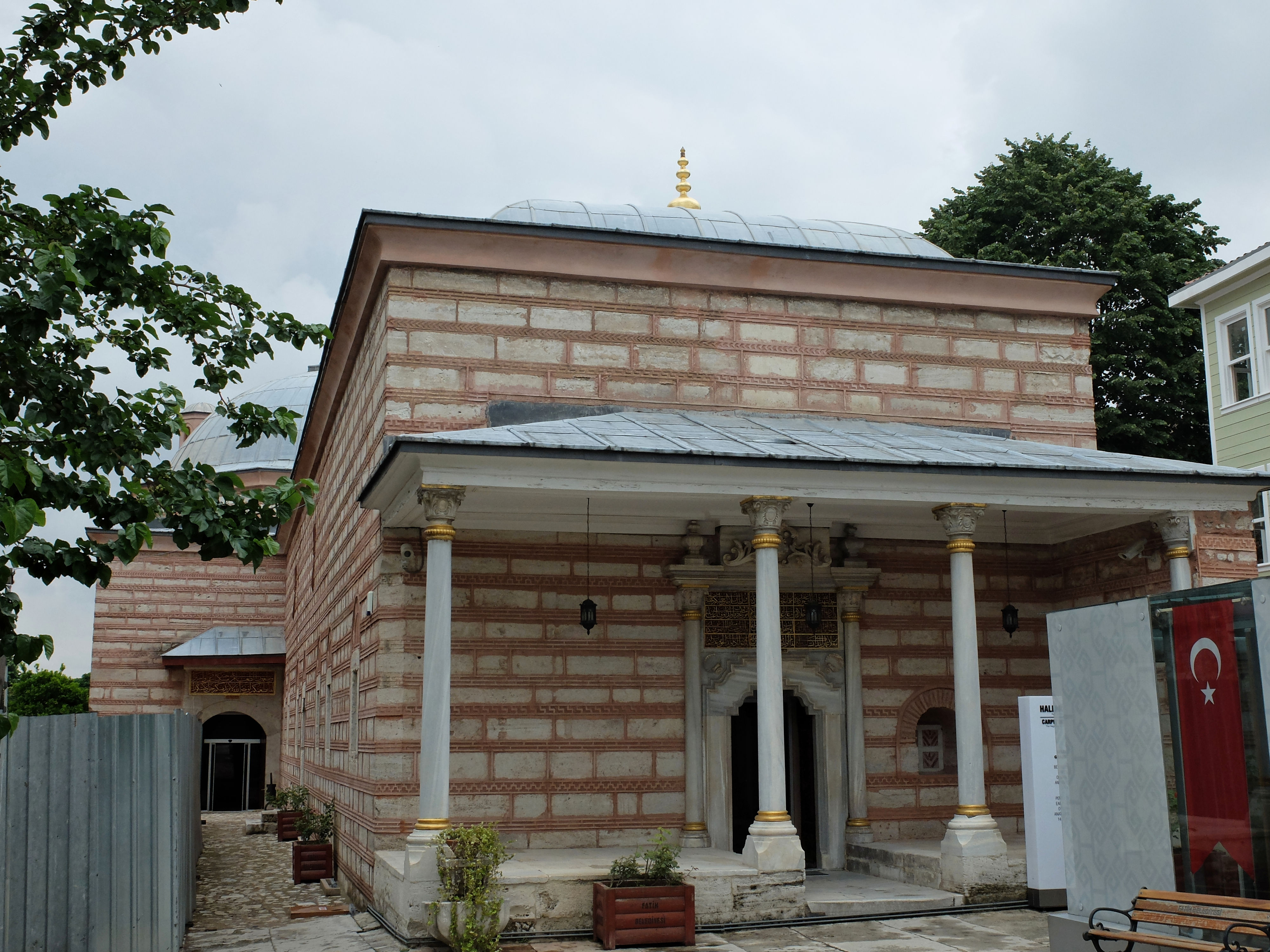|
Soup Kitchen
A soup kitchen, food kitchen, or meal center, is a place where food is offered to the hungry usually for free or sometimes at a below-market price (such as via coin donations upon visiting). Frequently located in lower-income neighborhoods, soup kitchens are often staffed by volunteer organizations, such as church or community groups. Soup kitchens sometimes obtain food from a food bank for free or at a low price, because they are considered a charity, which makes it easier for them to feed the many people who require their services. Many historical and modern soup kitchens serve only soup, or just soup with bread. But other establishments which refer to themselves as a "soup kitchen" also serve a wider range of food, so social scientists sometimes discuss them together with similar hunger relief agencies that provide more varied hot meals, like food kitchens and meal centers. While societies have been using various methods to share food with the hungry for millennia, the first ... [...More Info...] [...Related Items...] OR: [Wikipedia] [Google] [Baidu] |
Simone Weil
Simone Adolphine Weil ( , ; 3 February 1909 – 24 August 1943) was a French philosopher, mystic, and political activist. Over 2,500 scholarly works have been published about her, including close analyses and readings of her work, since 1995. After her graduation from formal education, Weil became a teacher. She taught intermittently throughout the 1930s, taking several breaks due to poor health and to devote herself to political activism. Such work saw her assisting in the trade union movement, taking the side of the anarchists known as the Durruti Column in the Spanish Civil War, and spending more than a year working as a labourer, mostly in car factories, so she could better understand the working class. Taking a path that was unusual among 20th-century left-leaning intellectuals, she became more religious and inclined towards mysticism as her life progressed. Weil wrote throughout her life, although most of her writings did not attract much attention until after her ... [...More Info...] [...Related Items...] OR: [Wikipedia] [Google] [Baidu] |
Autarky
Autarky is the characteristic of self-sufficiency, usually applied to societies, communities, states, and their economic systems. Autarky as an ideal or method has been embraced by a wide range of political ideologies and movements, especially left-wing ideologies like African socialism, mutualism, war communism, communalism, swadeshi, syndicalism (especially anarcho-syndicalism), and left-wing populism, generally in an effort to build alternative economic structures or to control resources against structures a particular movement views as hostile. Conservative, centrist and nationalist movements have also adopted autarky in an attempt to preserve part of an existing social order or to develop a particular industry. Proponents of autarky have argued for national self-sufficiency to reduce foreign economic, political and cultural influences, as well as to promote international peace. Economists are generally supportive of free trade. There is a broad consensus among eco ... [...More Info...] [...Related Items...] OR: [Wikipedia] [Google] [Baidu] |
Reciprocity (cultural Anthropology)
In cultural anthropology, reciprocity refers to the non-market exchange of goods or labour ranging from direct barter (immediate exchange) to forms of gift exchange where a return is eventually expected (delayed exchange) as in the exchange of birthday gifts. It is thus distinct from the true gift, where no return is expected. When the exchange is immediate, as in barter, it does not create a social relationship. When the exchange is delayed, it creates both a relationship as well as an obligation for a return (i.e. debt). Hence, some forms of reciprocity can establish hierarchy if the debt is not repaid. The failure to make a return may end a relationship between equals. Reciprocal exchanges can also have a political effect through the creation of multiple obligations and the establishment of leadership, as in the gift exchanges (Moka) between Big Men in Melanesia. Some forms of reciprocity are thus closely related to redistribution, where goods and services are collected by a ... [...More Info...] [...Related Items...] OR: [Wikipedia] [Google] [Baidu] |
Redistribution (cultural Anthropology)
In cultural anthropology and sociology, redistribution refers to a system of economic exchange involving the centralized collection of goods from members of a group followed by the redivision of those goods among those members. It is a form of reciprocity. Redistribution differs from simple reciprocity, which is a dyadic back-and-forth exchange between two parties. Redistribution, in contrast, consists of pooling, a system of reciprocities. It is a ''within'' group relationship, whereas reciprocity is a ''between'' relationship. Pooling establishes a centre, whereas reciprocity inevitably establishes two distinct parties with their own interests. While the most basic form of pooling is that of food within the family, it is also the basis for sustained community efforts under a political leader. Sahlins argues that generalized reciprocity within families by elders may be a "starting mechanism" for more general hierarchy, by placing many in the giver's debt. This leads to the questi ... [...More Info...] [...Related Items...] OR: [Wikipedia] [Google] [Baidu] |
Karl Polanyi
Karl Paul Polanyi (; hu, Polányi Károly ; 25 October 1886 – 23 April 1964),''Encyclopædia Britannica'' (Chicago: Encyclopædia Britannica Inc. 2003) vol 9. p. 554 was an Austro-Hungarian economic anthropologist and politician, best known for his book '' The Great Transformation,'' which questions the conceptual validity of self-regulating markets. In his writings, Polanyi advances the concept of the Double Movement, which refers to the dialectical process of marketization and push for social protection against that marketization. He argues that market-based societies in modern Europe were not inevitable but historically contingent. Polanyi is remembered best as the originator of substantivism, a cultural version of economics, which emphasizes the way economies are embedded in society and culture. This opinion is counter to mainstream economics but is popular in anthropology, economic history, economic sociology and political science. Polanyi's approach to the anci ... [...More Info...] [...Related Items...] OR: [Wikipedia] [Google] [Baidu] |
Journal Of Interdisciplinary History
The ''Journal of Interdisciplinary History'' is a quarterly peer-reviewed academic journal published by the MIT Press. It covers a broad range of historical themes and periods, linking history to other academic fields. Contents The journal features articles, review essays and book reviews, linking history with other fields of academic research, such as economics and demographics. Unlike most other historical journals, the content is not limited to one geographical area or historical period, and covers social, demographic, political, economic, cultural and technological history. Each issue has 200 pages. Editors Since its inception, the ''Journal of Interdisciplinary History'' has been edited by Robert Rotberg and Theodore Rabb. According to the ''Journal Citation Reports'', the journal has a 2014 impact factor of 0.727, ranking it 6th out of 87 journals in the category "History". According to the SCImago Journal Rank it has a h-index The ''h''-index is an author-level met ... [...More Info...] [...Related Items...] OR: [Wikipedia] [Google] [Baidu] |
Amy Singer (historian)
Amy Singer is a Professor of Ottoman and Islamic History at Brandeis University. Her major research areas are agrarian relations, philanthropy, and the city of Edirne. Education Singer took her BA at Swarthmore College (1982). She completed a Phd in Near Eastern Studies at Princeton University in 1989. Career In 1989, she was appointed as a lecturer in the Department of Middle Eastern and African History at Tel Aviv University. In 2007 she was promoted to Professor. Singer served as head of the Women's Studies Forum at Tel Aviv University. In 2018 she was appointed to the Department of History and the Sylvia K. Hassenfeld Chair in Islamic and Middle Eastern Studies at Brandeis University. She has held a number of research grants and fellowships including from the Israel Academy of Sciences and Humanities, the Institute for Advanced Study (Princeton) (2014–15), and a visiting fellowship at All Souls College, Oxford (2018–19). Singer has also held visiting professorships a ... [...More Info...] [...Related Items...] OR: [Wikipedia] [Google] [Baidu] |
Rice
Rice is the seed of the grass species '' Oryza sativa'' (Asian rice) or less commonly '' Oryza glaberrima'' (African rice). The name wild rice is usually used for species of the genera '' Zizania'' and ''Porteresia'', both wild and domesticated, although the term may also be used for primitive or uncultivated varieties of '' Oryza''. As a cereal grain, domesticated rice is the most widely consumed staple food for over half of the world's human population,Abstract, "Rice feeds more than half the world's population." especially in Asia and Africa. It is the agricultural commodity with the third-highest worldwide production, after sugarcane and maize. Since sizable portions of sugarcane and maize crops are used for purposes other than human consumption, rice is the most important food crop with regard to human nutrition and caloric intake, providing more than one-fifth of the calories consumed worldwide by humans. There are many varieties of rice and culinary preferences t ... [...More Info...] [...Related Items...] OR: [Wikipedia] [Google] [Baidu] |
Ottoman Empire
The Ottoman Empire, * ; is an archaic version. The definite article forms and were synonymous * and el, Оθωμανική Αυτοκρατορία, Othōmanikē Avtokratoria, label=none * info page on book at Martin Luther University) // CITED: p. 36 (PDF p. 38/338) also known as the Turkish Empire, was an empire that controlled much of Southeast Europe, Western Asia, and North Africa, Northern Africa between the 14th and early 20th centuries. It was founded at the end of the 13th century in northwestern Anatolia in the town of Söğüt (modern-day Bilecik Province) by the Turkoman (ethnonym), Turkoman tribal leader Osman I. After 1354, the Ottomans crossed into Europe and, with the Ottoman wars in Europe, conquest of the Balkans, the Ottoman Anatolian beyliks, beylik was transformed into a transcontinental empire. The Ottomans ended the Byzantine Empire with the Fall of Constantinople, conquest of Constantinople in 1453 by Mehmed the Conqueror. Under the reign of Sule ... [...More Info...] [...Related Items...] OR: [Wikipedia] [Google] [Baidu] |
Imaret
Imaret, sometimes also known as a ''darüzziyafe'', is one of a few names used to identify the public soup kitchens built throughout the Ottoman Empire from the 14th to the 19th centuries. These public kitchens were often part of a larger complex known as a ''külliye'', which could include hospices, mosques, caravanserais and colleges. The imarets gave out food that was free of charge to specific types of people and unfortunate individuals. Imarets were not invented by the Ottomans but developed under them as highly structured groups of buildings. Nonetheless, imarets indicate an appreciation of Muslim religious teachings about charity found in the Qur'an. History A ''Waqf'' is an "Islamic trust" that had important associations to the imaret within the Ottoman Empire. The ''Waqf'' helped the Sultan to provide essential services to citizens. It dealt with the operation and finances of institutions such as the soup kitchens and hospitals. Doğan Kuban notes that in early Ott ... [...More Info...] [...Related Items...] OR: [Wikipedia] [Google] [Baidu] |
St Paul
Paul; grc, Παῦλος, translit=Paulos; cop, ⲡⲁⲩⲗⲟⲥ; hbo, פאולוס השליח (previously called Saul of Tarsus;; ar, بولس الطرسوسي; grc, Σαῦλος Ταρσεύς, Saũlos Tarseús; tr, Tarsuslu Pavlus; la, Paulus Tarsensis AD), commonly known as Paul the Apostle and Saint Paul, was a Apostles in the New Testament, Christian apostle who spread the Ministry of Jesus, teachings of Jesus in the Christianity in the 1st century, first-century world. Generally regarded as one of the most important figures of the Apostolic Age, he founded Early centers of Christianity, several Christian communities in Asia Minor and Europe from the mid-40s to the mid-50s AD. According to the New Testament book Acts of the Apostles, Paul was a Pharisees, Pharisee. He participated in the Persecution of Christians in the Roman Empire, persecution of early Disciple (Christianity), disciples of Jesus, possibly Hellenistic Judaism, Hellenised diaspora Jews converte ... [...More Info...] [...Related Items...] OR: [Wikipedia] [Google] [Baidu] |




.jpg)